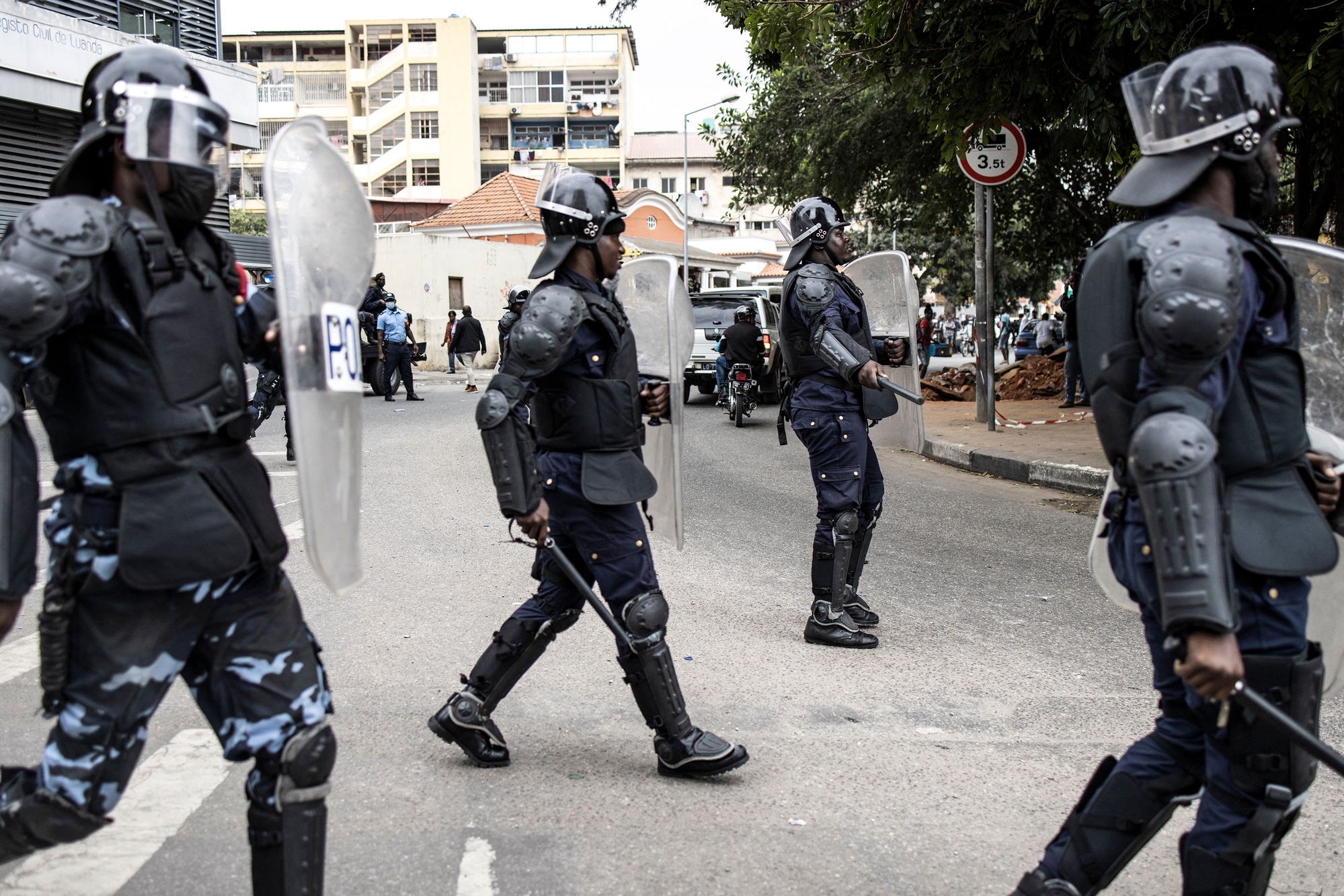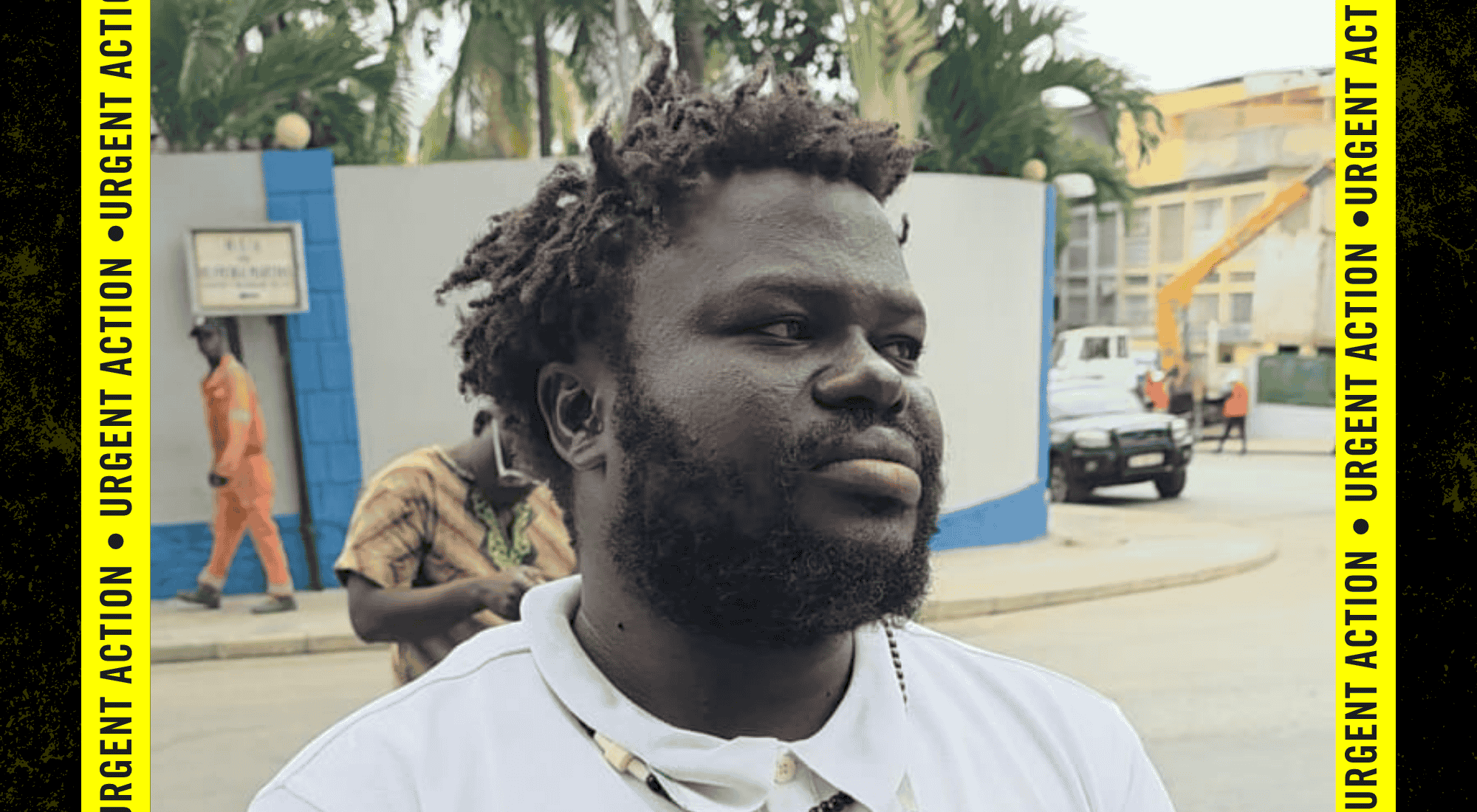On July 28, activist Serrote José de Oliveira was shot in the leg by armed men believed to be linked to Angola’s Criminal Investigation Services (SIC) while livestreaming the first day of a strike in Luanda. He was arrested and held in arbitrary detention until August 1, when his family learned he was being held in SIC prison cells in Luanda.
That same day, he was brought before a court but was not formally charged. On August 6, Serrote was transferred—without his lawyers’ knowledge—to Comarca Central Prison, where he spent only a few hours before being returned to SIC cells.
His health is deteriorating, yet he has not received medical treatment for his gunshot wound. His family has still not been allowed to see him.
Here’s what you can do:
Write to the Angolan Minister of Justice and Human Rights urging him to:
- Immediately release Serrote José de Oliveira.
- Pending his release, grant him immediate access to all necessary medical care and allow him to see and communicate with his family..
Write to:
Minister of Justice and Human Rights
Marcy Cláudio Lopes
Casarão da Justiça, Rua 17 de Setembro
Gombota, Luanda, LU, Angola
E-mail: dndh.mjdh.angola@gmail.com
Salutation: Dear Minister of Justice,
And copy:
His Excellency Agostinho de Carvalho dos Santos Van-Dunem
Ambassador
Embassy of the Republic of Angola
2100-2108 16th Street, NW
Washington, D.C., DC 20009
United States of America
Tel: (202) 785-1156/7/8 Fax: (202) 822-9049
Email: info@angola.org
Widespread protests over fuel price hike
In July 2025, civil society groups in Angola called for nationwide protests after the government raised diesel prices by over 30%. The increase led to a sharp rise in minibus taxi fares, which many people rely on for daily transport. These protests reflected growing frustration over the rising cost of living and worsening economic pressures.
The first wave of protests began on July 12 in Luanda, the capital. Police responded with force, arresting at least 12 people and using unnecessary and excessive violence to disperse crowds.

Targeting of activists
On July 19, activist Osvaldo Kaholol, 36, was arrested just hours before another planned protest in Luanda. Authorities accused him of inciting violence after he appeared in a livestream mobilizing support for the demonstrations.
Osvaldo was held for over 24 hours without access to his lawyer or family. He was later transferred to Calomboloca Prison without any official notice. His family only found out five days later. In protest against prison conditions and restrictions on receiving food from family, Osvaldo began a hunger strike on July 22. He was also forced to wear the same clothes for eight days.
Escalation and mass arrests
The Angola National Taxi Association (ANATA) launched a three-day strike beginning July 28. The strike aimed to pressure the government to reverse the diesel price hike, which had caused a 50% surge in public transport fares.
The strike was met with violent clashes, vandalism, and a heavy-handed police response across Luanda. On July 31, the Minister of Interior reported 1,214 arrests, 22 deaths, and 197 injuries over just two days.
Silence from the government
Despite the scale of the protests and growing calls from civil society and opposition leaders for dialogue, the Angolan government has yet to publicly respond.
This isn’t the first time that changes in fuel prices have sparked deadly unrest. Amnesty International’s latest report on Angola documented that what became known as the ‘Huambo protests’ on June 5 led to the deaths of five people including a 12-year-old boy who was killed on his way home from school.
These repeated crackdowns reflect a troubling pattern of repression and disregard for human rights by the Angolan authorities.
Please take action as soon as possible until February 8, 2026. The UA will be duly updated should there be the need for further action.
























